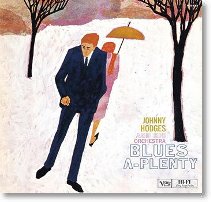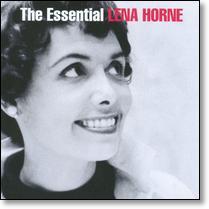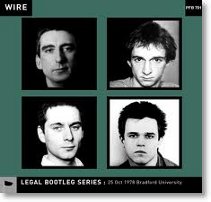A Consumer Guide to the Trailing Edge: July, 2011
Recycled Goods (#87)
by Tom Hull
 |
 |
 |
The scheme here is to post whatever applicable reviews -- reissues and vault music, of course, and sometimes newer world music -- I have saved up when the monthly calendar turns over. Some months I have more. Some I have less. This one is actually pretty average, at least over the last couple years. But I'm feeling rather hobbled here. I came down with some kind of respiratory illness on June 22 and it's dogged me ever since. Have run a persistent fever, pulse rate elevated, short of breath, dry cough. First sign was chest pain but that turned out to be a false alarm. Since then, for every day I seemed to be getting better, there's been another turning for the worse. I should have posted this several days ago, especially since there was nothing to write but this intro.
Chris Barber: Memories of My Trip (1958-2010 [2011], Proper, 2CD): English trombonist, one of the major figures in Britain's trad jazz movement in the 1950s, looking back from age 80 on a career that did more than preserve past music: Barber was especially important in building British interest in American bluesmen, which led to all sorts of things, not least the Rolling Stones. I don't have good dates on everything here, but some of the earliest tracks come from a 1958 tour with Sonny Terry and Brownie McGhee; later tracks feature bluesmen from Muddy Waters to Jeff Healey, but also Lonnie Donegan, Van Morrison, and Andy Fairweather Low. The guest star framework slights Barber's own play and his wry vocals, making room for old jazz hands like Edmond Hall, Albert Nicholas, and Trummy Young. But at least he leaves some space for Ottilie Patterson, his long-time singer and wife. Could use more of her, and more jazz instrumentals: Hall's "St. Louis Blues" is definitely a high point. B+(**) [R]
Johnny Hodges: Blues-A-Plenty (1958 [2011], Verve): A download-only release, the latest gambit in reducing back catalogue to pure profit. Hodges was Duke Ellington's prize alto saxophonist from 1927 until his death in 1970, except for a few years in the 1950s when he wandered off, feeling underappreciated, or more specifically underpaid. But he never wandered far, and his personal albums are the crown gems of small group Ellingtonia. Here, for instance, his rhythm section includes Billy Strayhorn and Sam Woodyard, and they do "Satin Doll" as gorgeously as it's ever been done. And when Hodges wants a little more horn power, he taps his peers: Roy Eldridge (trumpet), Vic Dickenson (trombone), and Ben Webster (tenor sax). Aside from a Japanese release, the last time this appeared on CD was when Verve slipped this and a Sweets Edison album into the 2-CD The Soul of Ben Webster. Fabulous combination, but Hodges, as ever, was the sweet spot. I'd grade this higher if it were real. A- [R]
The Essential Lena Horne (1941-75 [2010], Masterworks/Legacy, 2CD): Will Friedwald describes her as "the Jackie Robinson of show business," noting her Hollywood debut in 1942 in Panama Hattie: "It's not too much of an exaggeration to suggest that this film marked the mass-media debut of the concept of the African American as a real person." Still, part of her appeal must have been her looks -- gorgeous, but with straight hair and a narrow nose that could pass for white. She was born in 1917, grew up in Georgia and New York, joined the Cotton Club chorus line, toured with Charlie Barnet, and headed to Hollywood where she reprised her signature hit, "Stormy Weather." Still, her roles were limited, and she got blacklisted for progressive politics. (During WWII when she insisted on an integrated audience the Army rounded up some German POWs to join US black soldiers.) But she could always fall back on her singing. This starts with a few 1941 cuts, jumps to 1955-62, finally a couple later tracks, starting and ending with takes of "Stormy Weather." Lots of show tunes, many standards, with fairly anonymous big bands that underscore her mastery of timing and her clear and nuanced voice. A-
The Essential Earth Kitt (1952-57 [2011], RCA/Legacy, 2CD): Multicultural before it counted, mother African and Cherokee, father a white rapist, moved at 9 from the South Carolina cotton patch to Harlem where she picked up French and worked that into her singing, dancing, and acting. Doesn't seem to have been a big star: a few 1953-54 singles charted, the highest "Santa Baby"; acting roles included playing Helen of Troy for Orson Welles in 1950 and Cat Woman in the 1967-68 television series Batman, with several Broadway musicals in between. But she was a cultural icon, one I recall fondly for chewing Lady Bird Johnson out over the Vietnam War. (She doesn't seem to have been especially political, but Johnson invited her to a luncheon and asked the question.) Kitt recorded from 1953-65, then came back in 1989 with I'm Still Here and worked steadily to her death in 2008, but this early slice seems to have been her prime. Some standards, some show tunes, quite a few things where she slips into French or Spanish or adopts a foreign vibe -- as in the calypso "Somebody Bad Stole De Wedding Bell" or "Uska Dara: A Turkish Tale" -- but ends with four W.C. Handy blues and the gospel "Steal Away," backed by Short Rodgers and the Jester Hairston Choir. She wrote three autobiographies, the last subtitled Confessions of a Sex Kitten. She had a long career replete with surprises. This is a tightly wound slice, idiosyncratic enough you have to wonder what people thought at the time. B+(***)
NYC Salsa: The Incendiary Sound of Latin New York (1970-79 [2007], Fania, 2CD): One of the things that attracted me to New York in the mid-1970s was salsa music: on the radio, but especially on the streets pumping out of boom boxes. I wanted to make a project out of exploring it, but somehow the records I bought never quite jelled in my mind, and thrashing I pretty much gave up. The 1970s were the heyday of Fania records, their house band, the Fania All Stars, and their vast roster including many famous from elsewhere -- Celia Cruz, Tito Puente, Ray Barretto, Mongo Santamaria, Willie Colón were among the names I had heard much of. Still should be a project, but I doubt I'll ever be able to sort out so many artists who all sound the same to me: the hyper upbeat grooves with offbeat percussion, the massed brass flashes, the way-too-many singers. Liner notes don't provide dates or discography, but the ones I could look up landed in the 1970s, what they call the Golden Era. Seems more like the Brass Age, but on some level it still moves me. B+(**)
The NYFA Collection: 25 Years of New York New Music (1988-2010 [2010], Innova, 5CD): I've been avoiding this, if for no more reason than sheer length. NYFA is the New York Foundation for the Arts, set up in 1983. Since then they've provided fellowships for over 200 new music composers, and they're showing off 52 of them in this set. They run the gamut, but have been programmed to flow somewhat: the third disc is the most jazz-centric, with Iconoclast, Rudresh Mahanthappa, Fred Ho, John Lindberg (sometimes d/b/a BLOB), Newman Taylor Baker. The fourth and fifth shade more classical. The first is more avant, mostly primitivist rhythm pieces. Packaged in a double-width jewel case with a loose booklet for each disc packed with lots of information in small type, and priced like a sampler. B+(**)
The Reatards: Teenage Hate/Fuck Elvis Here's the Reatards (1998 [2011], Goner): Memphis punk band, where James Lee Lindsey adopted his future solo name, Jay Reatard, on his way to a 29-year-old death. This reissues his/their -- band included guitarist Steve Albundy Reatard and drummer Elvis Wong Reatard -- first official album, Teenage Hate, from 1998, and a demo cassette that possibly dates back to 1996, totalling 39 songs, 73:53 on one disc. The album is sharper sonically, getting just enough rockabilly twang into their punk reduction to suggest that they knew what they were fucking with. Wears a bit thin toward the end, but could have been prophetic. B+(***) [R]
The Essential Django Reinhardt (1949-50 [2011], RCA/Legacy, 2CD): The gypsy jazz guitarist's recording career runs from 1934 to his death in 1953, so plucking two sets from late on and declaring them to be the essential slice is preposterous from the start, but record companies make what they can from what they got -- last time in print RCA touted the same two discs as The Indispensable Django Reinhardt, although parts have also seen print as Djangology. Both sets were cut in Rome, so fans may even prefer to search out JSP's 4-CD superset, Django in Rome, but this is serviceable and representative. The sets were cut with local rhythm sections, not as sharp as the old Hot Club, but Stéphane Grappelli's violin keeps the 1949 tracks close to the model. But for the 1950s cuts, the violin is replaced with André Ekyan on alto sax and clarinet for a smoother flow, or thrill with the right song. B+(**)
Wire: 14 Sept 2002, Metro, Chicago [Legal Bootleg Series] (2000 [2010], Pinkflag): The first band that came out of late-1970s Britain that could be called post-punk -- art school progressives, they took the idea of punk and wrapped it up into tight little packages with a lot of menace and drone. They ran from 1977 up to 1990 or so, lost a quartet member so cut an album as Wir, then reemerged around 2000 with the recognition that their best work was behind them so the way to carry on was to return to their original concepts. Live, they come off denser and darker than ever. Rhapsody has four of these "legal bootlegs"; looks like at least eight are available, and more where those came from. A- [R]
Briefly Noted
Till Brönner: Chattin' With Chet (2000 [2011], Verve): German trumpeter-vocalist, no idea how he adds up given this is the only one I've heard; mostly a credible Chet Baker tribute with "When I Fall in Love" touching and the instrumental "My Funny Valentine" sly, the main shift a preference for synth beats; however, he throw in a rap on the side, and more smooth funk than is really healthy. B [R]
Kate & Anna McGarrigle: Odditties (1973-90 [2010], Querbeservice): Kevin Ayers once released a trivia compilation called Odd Ditties, which seems to be the point of the title, except that the ditties aren't so odd: scattered demos and live shots, some in French with fiddle, several Stephen Foster songs recorded late; Kate's dead, and Anna can't do this alone, so be thankful. A- [R]
Leo Smith: Human Rights (1982-85 [2009], Kabell): From the avant trumpeter's pre-Wadada rastafari days, scattered pieces with Smith's vocals and horn over guitar, synth and/or mbira, backed with a world music oddity mixing koto with Peter Kowald and Günter Sommer; parts of this could break pop, but no point getting too comfortable. B+(*) [R]
Wire: 25 Oct 1978 Bradford University [Legal Bootleg Series] (1978 [2010], Pinkflag): One from their heyday, evolving from their second, Chairs Missing, to the softer third, 154, not that anything here qualifies as soft; surprising after all these years how many of their not-quite-tunes stick to the ribs, recognizable even scruffed up unlike their fastidious studio records. A- [R]
Wire: 21 July 1988 Astoria, London [Legal Bootleg Series] (1988 [2010], Pinkflag): Late 1980s, as they decompressed with lighter, milder, more melodic fare -- The Ideal Copy and A Bell Is a Cup . . . Until It Is Struck were the forgettable studio albums -- but live they go for long, heavy, and dense, just like they always do. B+(*) [R]
Wire: 08 Dec 2000 Queen's Hall, Edinburgh [Legal Bootleg Series] (2000 [2010], Pinkflag): Unless you're especially fond of their dense clatter, this takes a while to jell, and it's the old songs that do the trick -- "Lowdown," "Another the Letter," "12xU" -- well into a set that never lets up. B+(***) [R]
Neil Young: International Harvesters: A Treasure (1984-85 [2011], Reprise): The ninth of what promises to be a very long series of new albums curried from old live tapes, this one catching Young's return to country roots after a few years kicking about eclectically, trying out everything from vocal synthesizers to soul horns; the next album was Old Ways, but this rocks much harder, framing period songs in cascades of electric twang. B+(***) [R] [Later: A-]
Legend: B+ records are divided into three levels, where more * is better. [R] indicates record was reviewed using a stream from Rhapsody. The biggest caveat there is that the packaging and documentation hasn't been inspected or considered, and documentation is especially important for reissues. But also my exposure to streamed records is briefer and more limited, so I'm more prone to snap judgments.
For this column and the previous 86, see the archive.
Copyright © 2011 Tom Hull.